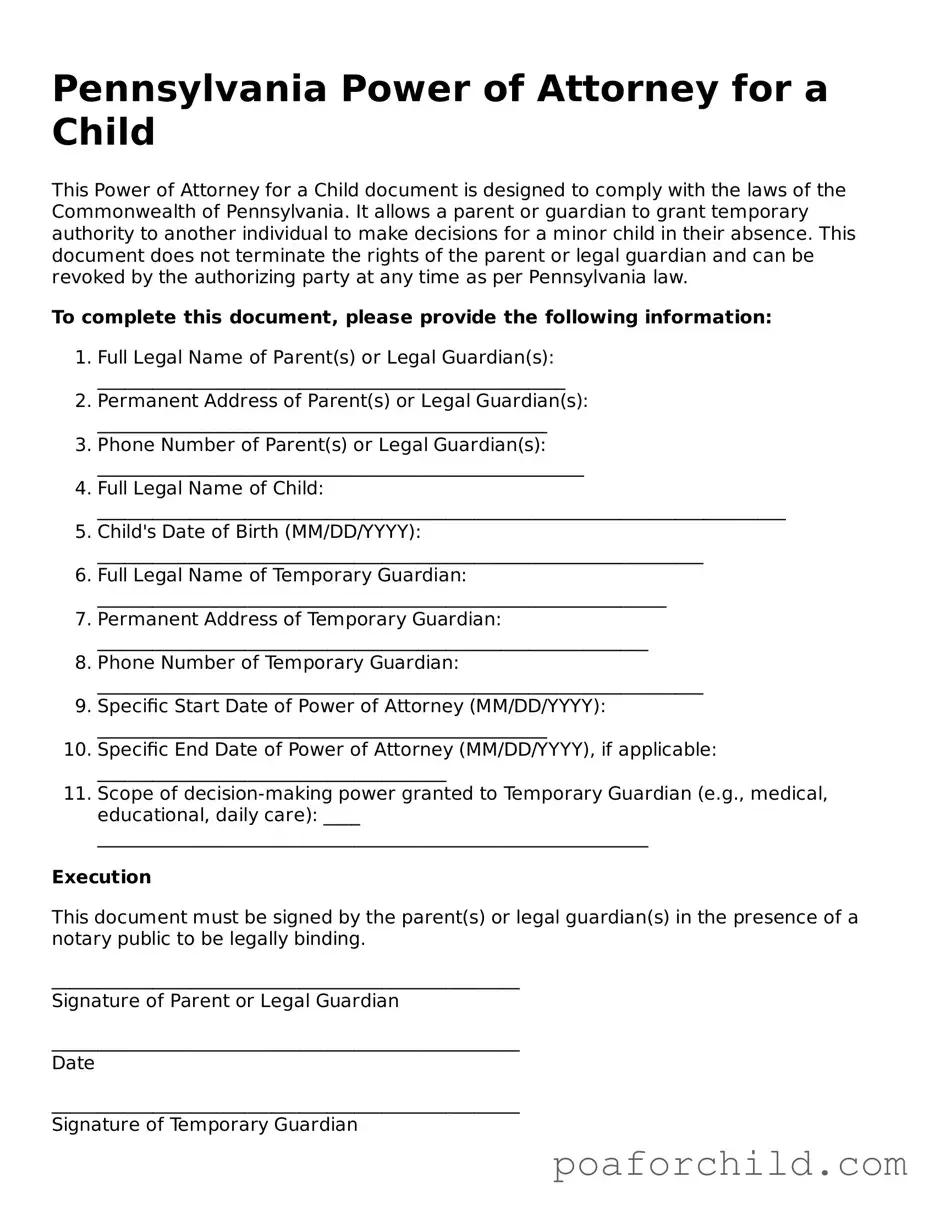Detailed Guide for Using Pennsylvania Power of Attorney for a Child
When a parent or guardian needs to assign another adult the legal authority to make decisions regarding their child's welfare, education, and health, a Power of Attorney (POA) for a Child form is used. For residents of Pennsylvania, filling out this form ensures that in times of absence or incapacitation, the child will continue to receive proper care. To effectively complete this documentation, you must provide detailed information regarding all parties involved and the specific powers being granted. Here are the step-by-step instructions to fill out the form accurately.
- Gather all necessary information about the child, the parent or guardian (the grantor), and the appointed agent. This includes full names, addresses, and birth dates.
- Complete the top section of the form by entering the name(s) and address(es) of the parent(s) or legal guardian(s).
- Specify the full name and address of the agent who is being granted power of attorney for the child.
- In the designated section, outline the specific powers being granted to the agent. This can range from general welfare and health care decisions to specifics about education and extracurricular activities.
- Specify the effective date of the power of attorney and any conditions that would cause it to terminate. If no termination date is provided, note the duration according to Pennsylvania state laws.
- Both the granting parent(s) or guardian(s) and the appointed agent must sign the form. Ensure the signatures are witnessed by a neutral third party or notarized, if required by Pennsylvania law.
- Provide information about the child, including full name, date of birth, and any additional identifying details that may be necessary.
- Review the entire form to ensure all information is accurate and no sections have been missed.
- If applicable, register the power of attorney with the relevant Pennsylvania state office or as advised by legal counsel.
- Make copies of the signed document for the parent or guardian, the appointed agent, and any institutions or individuals that may require it, such as schools or medical providers.
By following these steps, parents or guardians in Pennsylvania can confidently establish a Power of Attorney for a Child. This legal document plays a critical role in ensuring a child's needs are met when the parent or guardian cannot be present to make decisions. It is beneficial for both the child and the appointed agent to have clear, written authorization for various situations that require immediate attention.
